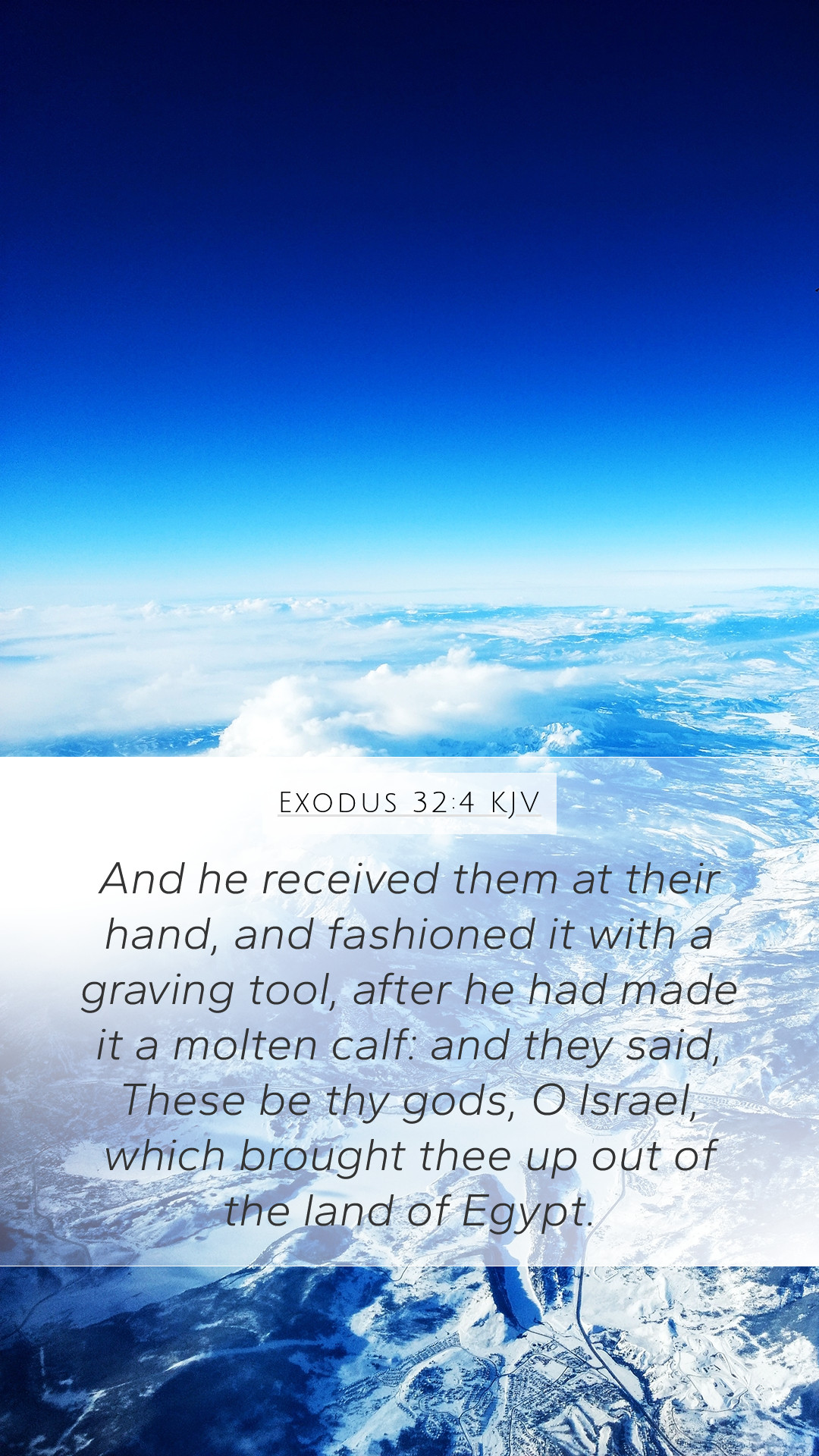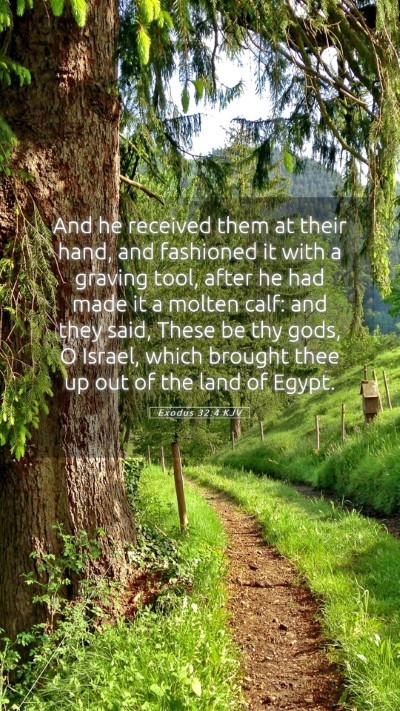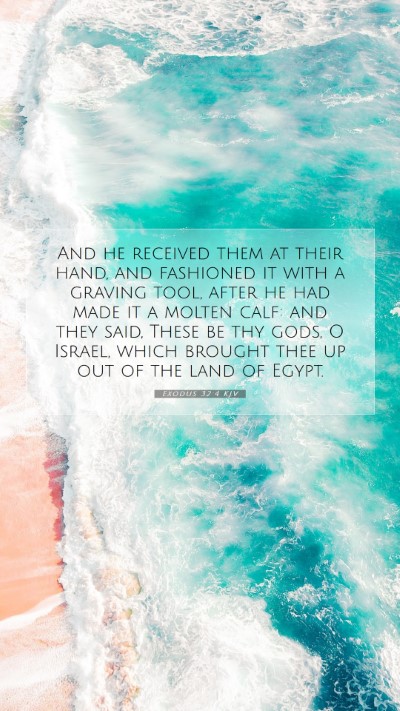Old Testament
Genesis Exodus Leviticus Numbers Deuteronomy Joshua Judges Ruth 1 Samuel 2 Samuel 1 Kings 2 Kings 1 Chronicles 2 Chronicles Ezra Nehemiah Esther Job Psalms Proverbs Ecclesiastes Song of Solomon Isaiah Jeremiah Lamentations Ezekiel Daniel Hosea Joel Amos Obadiah Jonah Micah Nahum Habakkuk Zephaniah Haggai Zechariah MalachiChapter
Exodus 1 Exodus 2 Exodus 3 Exodus 4 Exodus 5 Exodus 6 Exodus 7 Exodus 8 Exodus 9 Exodus 10 Exodus 11 Exodus 12 Exodus 13 Exodus 14 Exodus 15 Exodus 16 Exodus 17 Exodus 18 Exodus 19 Exodus 20 Exodus 21 Exodus 22 Exodus 23 Exodus 24 Exodus 25 Exodus 26 Exodus 27 Exodus 28 Exodus 29 Exodus 30 Exodus 31 Exodus 32 Exodus 33 Exodus 34 Exodus 35 Exodus 36 Exodus 37 Exodus 38 Exodus 39 Exodus 40Verse
Exodus 32:1 Exodus 32:2 Exodus 32:3 Exodus 32:4 Exodus 32:5 Exodus 32:6 Exodus 32:7 Exodus 32:8 Exodus 32:9 Exodus 32:10 Exodus 32:11 Exodus 32:12 Exodus 32:13 Exodus 32:14 Exodus 32:15 Exodus 32:16 Exodus 32:17 Exodus 32:18 Exodus 32:19 Exodus 32:20 Exodus 32:21 Exodus 32:22 Exodus 32:23 Exodus 32:24 Exodus 32:25 Exodus 32:26 Exodus 32:27 Exodus 32:28 Exodus 32:29 Exodus 32:30 Exodus 32:31 Exodus 32:32 Exodus 32:33 Exodus 32:34 Exodus 32:35


Exodus 32:4: "And he received the gold from their hand, and fashioned it with a graving tool, and made a molten calf: and they said, These be thy gods, O Israel, which brought thee up out of the land of Egypt."
This commentary aims to provide a comprehensive understanding of Exodus 32:4, drawing insights from esteemed public domain commentaries such as those by Matthew Henry, Albert Barnes, and Adam Clarke. This verse represents a pivotal moment in Israel's history, illustrating both human frailty and the challenges of faithfulness.
Understanding Exodus 32:4
The narrative unfolds as Moses, who had been receiving the Ten Commandments from God on Mount Sinai, is delayed, provoking the Israelites to act impulsively. They demand a physical representation of God, leading to the creation of the golden calf.
Historical Context
This passage occurs at a time when the Israelites had recently escaped slavery in Egypt, emboldened by God's miraculous works. However, their faith is tested as they wait for Moses to return.
Theological Implications
The act of creating an idol directly challenges the concept of monotheism that the Israelites were to uphold. The golden calf becomes a symbol of disobedience and a blatant solicitation of God's wrath.
Application of Exodus 32:4
The lessons from this verse are relevant to contemporary believers. Understanding the dangers of idolatry—whether physical or metaphorical—can guide individuals in their daily lives.
Bible Cross References
In conclusion, Exodus 32:4 serves as a profound reminder of the struggles against faithlessness and the pursuit of tangible idols. It challenges believers to reflect on their relationship with God amidst trials and the societal pressures that may draw them away from true worship.
Further Bible Study Resources